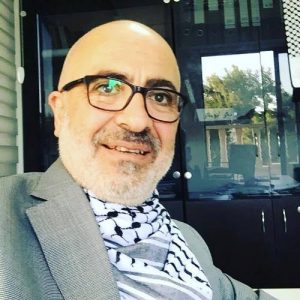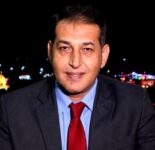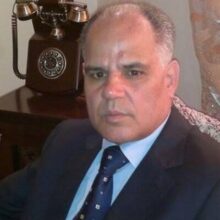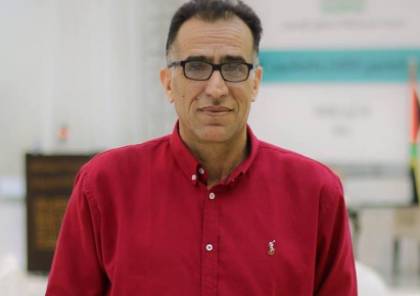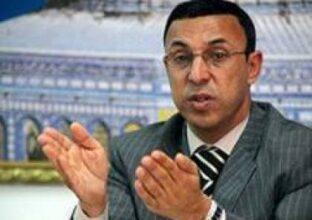Maryam, take the book and teach them that you remain despite the absence
Al-Khamisa News Network - Gaza
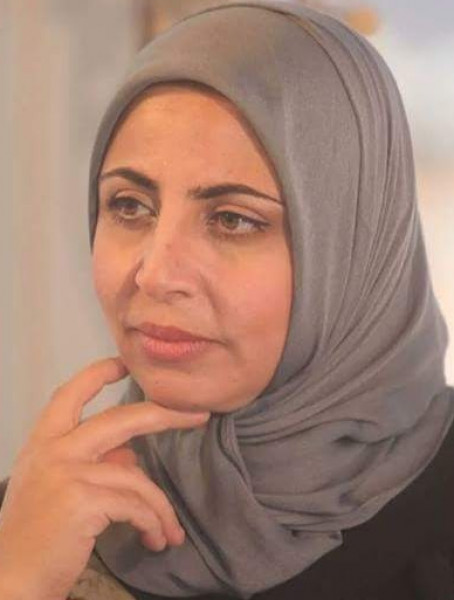
By Hidaya Shamoun
Nightmares chased me until I could not sleep a single hour all night; my heart leapt as if dozing on a sheet of hot metal ablaze with fire. The city is physically far from me but crushes me with its closeness to my soul. I rise and take a few steps, staring into the dark night around me. I feel the remains of my home and those massacres turning in my mind. Silence swallows me again, so I try to outwit the night. I wake early, having swallowed a great quantity of tears, a lump that tightens my breathing. “Mariam Abu Daqa,” the beautiful, kind journalist, was killed several hours ago—no, several days ago…! She was carrying her camera, filming the wounded on the steps of the Nasser Medical Complex in Khan Younis. Many journalists and rescuers surrounded her; some fell, between martyrs and wounded, and in front of live-streaming cameras…!
I did not search for a photo of us together, nor did I hunt for hidden messages and conversations to announce to everyone, and I will not do that…! All I remember are the times I saw you or heard you speak quickly and spontaneously while smiling, with such gentleness, politeness and simplicity — I never knew anyone with your spontaneity. Our friend Mona would always, when she saw you and you came running up to speak to her, say: “Oh my, this girl—what a kind heart she has…” The last time was at the final training for self-care for female journalists at the museum “that all Gaza knew and now not a stone remains of” — you were with us and beside us, deciding how we would sit, the blue backdrop rippled with Arabic letters behind us. With your spontaneity you would separate us sometimes and suggest we take beautiful pictures…! We still keep your pictures that speak of beauty and are a part of the beauty of your soul…! Your eyes were lovely; you saw beauty and it pained you that your camera be turned only to tragedies, funerals, tears, collapse and destruction…!
How much you suffered alone, Mariam—bold and brave and without fear. But look at your last images: the war took so much from you — your tired features, a face that grew darker, your wilting eyes. Something was taking you from life: a dimming spark, breaths heavy with worries, anguish and longing… It pained you to see your city, its streets, houses and people wounded and aching without support, without a hand to soothe their wounds. Now the people of Gaza alone face killing every moment, just as you were alone…!
Photos and videos remain alive and bear witness to the draining life, the exhaustion and the horrors of the apocalypse that Mariam lived and transmitted with her camera and short videos. In one video her sigh escapes; a colleague urges her to speak, but she had no strength. She was in brutal moments, as if repeating a terrifying farewell. She bade farewell to her mother and eulogized her with a grieving, broken heart, and she bade farewell to her son Ghaith, the dearest heart to her, hoping to save him from what she lived through in Gaza and so he could know a normal life. He left to another country while she remained under extermination, striving to convey the voices of bereaved mothers, the cries of bereft children, the scattered remains around her, and the terrifying loop of fear for her family—her father, her sister and the rest of the family who survived the killings and were forced to flee. “Mariam,” the humane journalist who donated her kidney to save her father from the pain of illness, left a living part of herself in his body — and no one knew of that until after her martyrdom…!
She said it and her voice still resounds: “I am the martyr who will be saved from life and not from death…!” Mariam wrote, in spontaneous words expressing the depth of the pain and tragedy Gaza lives today:
“I was there…
amid the destruction, moving between moans and pleas…
the camera on my shoulder, my heart in my hand…
I felt exhausted, yes. My body was screaming for rest, my eyes were about to close from fatigue, but… I could not stop.”
Mariam bled with pain for what she saw every day in a city wrung by war: men, women and families killed in broad daylight, children dying of malnutrition. Every morning Mariam ran between hospitals and tents — a funeral for a child here, a funeral for an entire family there. She documented farewells, towering tears and muffled screams; her camera captured the screams of a bereaved mother, a little girl crying for her father to rise from his white shroud, a resigned mother who only smooths her son’s blood‑soaked hair. Mariam embraced everyone’s pain and stood despite her daily silent dying. She bade a harsh goodbye to her colleague Ibrahim Hajjaj, and her writings and voice sounded sorrowful — a grief that strips hearts, whose owner seems extinguished and unlike himself, unable to soothe the pain. She wrote:
“By God, I was calm…
a support and companion on the road and in life. The martyrdom of my brother whom my mother did not give birth to, Abu Anas, my companion at work and in life, by Israeli shelling in Gaza City — O God protect him and illuminate his grave as he was a light to my heart and to the hearts of his loved ones; he is now in Your abode.”
For nearly seven hundred days she saw and lived each day chasing funerals, suppressed tears and the breaking of hearts. She carried the sorrow of mothers and remembered her son Ghaith each time, wrapping herself in a little hope that she might one day see him a grown young man; she did not see him and will not see him again. She set aside her journalist’s vest and helmet though she was killed in moments on air with other journalist colleagues while documenting a strike at Nasser Hospital in Khan Younis — on the high stairways and in front of hundreds of hospital visitors, patients and displaced people. An Israeli shell hit them fatally and she was martyred on the spot…! This is our beautiful Mariam whom we all saw just moments before her martyrdom — there she was like an angel smiling, as if in an inevitable farewell; the smile planted on her face even as she wept. This is Mariam, this is Gaza…!
In August — the month Mariam died on air — exhaustion and fatigue reached their limit. She wrote painful words as if waiting for her turn at martyrdom, having followed the assassinations of journalists one by one: some while performing their journalistic duties, others with their families in their homes that turned into graves. In anguish she wrote: “When you see the soil cover the dearest thing you have, you will realize how trivial life is.” And in that same August she wrote: “God will bring her even if He delays.”
You read her present-absent words that resemble the state of Gaza’s people amid a raging genocidal war and she wrote: “Strangers in a world that does not resemble us, we wait for departure in silence.”
Mariam wrote daily about wounded young people and children and tried to help identify and save them from death while waiting for treatment that never came. She filmed a video with a wounded young man and wrote: “Ahmed, a man in his twenties, was hit by occupation missiles and lost the ability to walk. He asks for the simplest wish: treatment abroad to return to walking and to play the football he loves.”
Commenting on a photo she took of a small child carrying an IV for his injured father — a child who looked older than his years and shouldered mountains of worry and pain — she wrote: “In the emergency department at Nasser Hospital, a small child not more than ten years old holds in his small hands a blood bag larger than his size…
he walks quickly and fearfully, with features of manhood beyond his years.”
In anguish, longing and yearning she wrote about family loss:
“On the anniversary of my brother Muhammad’s martyrdom, today we bleed a new little bird, my nephew Wasim Mujahid. Wasim—true to his name—loves life and its people; he helps everyone without being asked, gives before being asked, offers reassurance with his look and leaves a mark with his silence. Wasim, the calm… the gentle, has gone and left us with his memory. I do not know how I will visit his tent and not meet him, how I will stand where he stood and not see him. Oh Wasim, oh the recurring loss and the pain that will not go away. The soul is heavy, my dear; each beloved face that disappears makes the days heavier and fills us with choking grief. In the presence of absence we pray that the memory remain, that love not be extinguished, and that your pure souls dwell in the heights of light.”
Mariam resembles Gaza that has disappeared yet remains present.
She said it in the heart of a genocidal assault, expressing what every female journalist, every mother and every girl in Gaza feels:
“I miss my old self who was fine; I miss my mind free of worries, thoughts and anxiety; I miss the spirit that grew old from so many hardships and responsibilities; I miss my strong, optimistic will away from life’s harshness; I miss myself before I was broken or saddened; I miss my old laugh that came genuinely from the heart; I miss reassurance, safety and rest; I miss my self that truly did not care about anything; I miss my old self that was lost to me and is hard to regain…!”
Her colleague Izz al‑Din Abu Aisha described her in his report for The Independent as not just a journalist but a fighter with a camera, living the war as she moved between destroyed houses, overcrowded hospitals and displacement camps, recording what the occupation does not want documented.
“Mariam” was not the first journalist targeted, nor the second, nor the tenth or twentieth. Mariam left and the killing of journalists in Gaza did not stop. A few days later journalist Islam Abed was martyred along with her husband and children after an Israeli strike hit their apartment in Gaza City, and journalist Iman Al‑Zamli was killed when a quadcopter located her and fired while she was standing in a queue to fill drinking water for her family. Female journalists fall one after another before our eyes. We fear intensely for every female journalist who remains in the Gaza Strip from north to center to south. Journalists are targeted with the brazenness and arrogance of the Israeli occupation; they face not only killing and direct targeting but also starvation and siege. Foreign press and international journalists are prevented from entering Gaza to cover the crimes happening every minute and hour for nearly 700 days. Those journalists who remain inside Gaza are targeted to kill the truth, to kill witnesses and to bury documentation of the crimes committed against our fathers, mothers and children. I write now as Rafah has been erased and Gaza is burning, residential blocks exploding square by square by robotic bombs sent by Israeli forces and then demolished; there is no journalism there now, no journalists able to cover the crimes happening every minute. They are being killed elsewhere in Gaza because they are the eyes of truth.
“Mariam,” who resembled Gaza in her humility, simplicity and humanity, in her rush to deliver the voice, swallowing her sorrows, yearning and her hope to continue the journalistic duty, is a face like the city that is still being annihilated. We cry for Mariam as we cry for Gaza; we cry for what is near and far after the Israeli killing machine erased her on live air — just as Gaza’s homes are being violated and families are buried alive and all we have left is ourselves, our remnants and our voices soaked in deep red blood. Oh Mariam, you have wounded us and left us wandering in your absence; those media women who remain now await death not life. Journalists carry their shrouds now instead of their cameras. The world condemns and cries out from time to time, but no one does anything to protect female and male journalists. What if we put a black band on our media platforms? What if we stopped media coverage outside Gaza? What if we published every day about a journalist — alive or dead — in Gaza? We want them alive among us; we do not want another obituary. We want them pulsing with hope. Who will give the bereaved mothers hope that their voices reach the world? Do not wait for the extermination of the remaining media women and men — do more than that. Stop transmitting and exporting the official Israeli narrative because it is not a human voice; it is the voice of occupation. Tell your children and grandchildren that Gaza’s female and male journalists carried their cameras against shells, their pens against exploding rockets, their voices against tanks, their photographs against starvation, thirst and daily oppression. Tell them that the word is the weapon of humanity and that telling the story is what we have to preserve what remains of our humanity. Save those who remain in Gaza…!”
Mariam wrote, speaking for the people of Gaza and for the miserable condition of journalists amid an unrelenting extermination: “We pretend before everyone that we are fine, we stand firm, and we carry on with our lives as normal, we speak a lot about patience, about loss, about everything — we are not fine…!”

